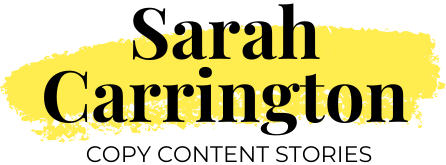From the archive: How not to produce great content
I wrote this post back in 2013 (gulp), when the then British prime minister faced a proto-leadership challenge from one of his own MPs who – it turned out – had made his millions from running a content farm. So I vented…
The world of internet marketing has moved on since then (and so has the MP – he filed for bankruptcy fairly recently) but I think the main points still stand. As does my rage at firms who wriggle out of paying a living wage!
Thanks to the emergence of a formerly obscure Windsor-based MP into the spotlight in the past week, followers of the Westminster merry-go-round have just become a little more familiar with content farms. These are the outfits that pack in their writers like battery hens and churn out ‘content’ to pad out clients’ websites and boost SEO results.
I don’t like it (for obvious reasons) but I guess it’s a legitimate business model – even if regurgitating press releases at a rate of four an hour does nothing to stop the spread of churnalism. Search-bots don’t – yet* – discern for quality, and so there are plenty of opportunities to feed them with cheap, down-and-dirty content. The markets abhor a vacuum and so here we are with quantity rather than quality being the name of the game here.
The same business model lies behind a huge number of postings on freelance job-matching and job-hunting sites. The MD of one of these sites (he doesn’t need me to help with his publicity) has also been in the media recently, pointing out that organisations of all shapes and sizes can benefit from using freelancers.
Nothing to disagree with there. But I’m not sure that professional freelancers benefit from using his site, or other sites like it. He promotes his site to businesses on the basis that they can get low-cost services. But as freelancers compete for jobs on the basis of price the fees on offer are minuscule. I found all these ads this morning:
A writer could earn $3 per article for a regular supply of articles of 400-500 words.
Or they could produce a 40-page business ebook (including simple design and graphics) plus a 200-300 word summary for a maximum price of AUS$250. Current average bid is AUS$49.
Alternatively, they could reply to a call for talented English writers to write small paragraphs for the princely sum of 20 to 25 cents per 150 words. So if you can write 600 words, you’ll get a dollar. Wow!
This advert was my favourite: “Quality & Experienced writer, Long term work, Rate 2$ per each 500 words article. I don’t need a writer who work for given word count length, who just fill up the article with fluff words to reach the given word count length. You really have to deserve for the price that I’m giving for each article.” Cheers for that!
So rock-bottom prices for work that is riddled with content farming DNA! Lovely. These are not outliers. I didn’t have to look hard for them – they were among the top five job ads in each category and they dominate every category.
I don’t want to get all Naomi Campbell about it, but I don’t get out of bed for that kind of money. And neither does any other freelancer who values the skills they have acquired over years of practice.
Yes, times are tough at the moment. They’re likely to stay tough for some time. But there is a correlation between price and value: and if you are looking for a freelance writer who is going to produce high-quality materials that speak to your audience and enhance your brand then I would suggest that you won’t find them on these sites.
Think about those bottom-scraping fees: that’s pre-tax, pre-pension, pre-social security, pre-business-expense income. Does it sound like a living wage? If it doesn’t, then you’re looking at a hobbyist not a professional. Of course, you may want a hobbyist – in which case, these sites are for you. You may decide that you want to give a novice a start – which is admirable. Either way, I hope you find a writer you can work with to your mutual benefit.
But if you want a professional who understands your market, your business, your audience, and your channels of communication, then you acknowledge that a good writer can value to your organisation. You should be prepared to pay for the skill and experience involved.
Freelance writers often face the assumption that everyone can do it. But that’s not the case. I can bash out chopsticks on the piano, but I’m not a pianist. I can whip up a pretty good lasagne. That doesn’t make me a chef. By the same token, being able to type doesn’t make someone a writer.
Healthy negotiation over fees and terms is fine. Beating your writer down to peanuts on an automated reverse auction site really isn’t. You’re worth more than that. I’m worth more than that. And none of us can stay in business if we can’t afford the rent.
*They do now. Write for humans not machines.

